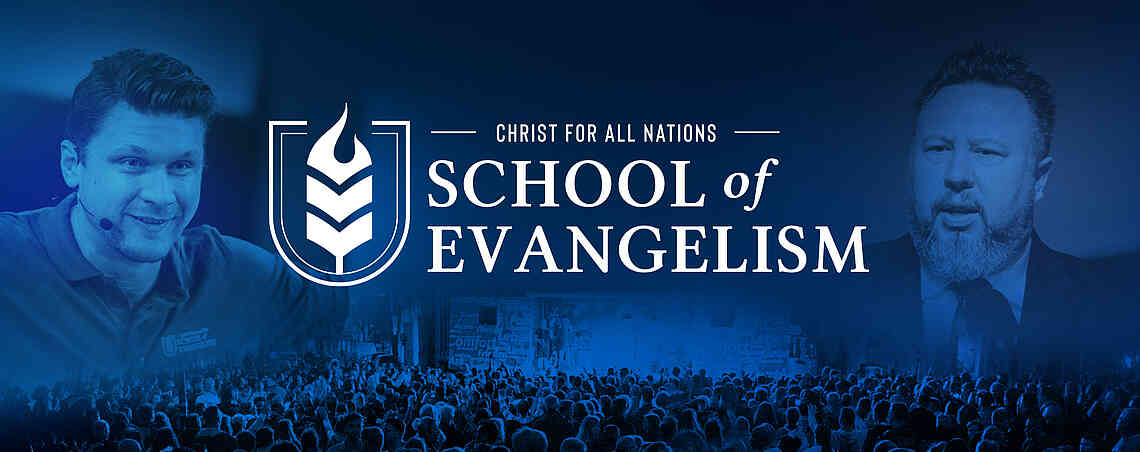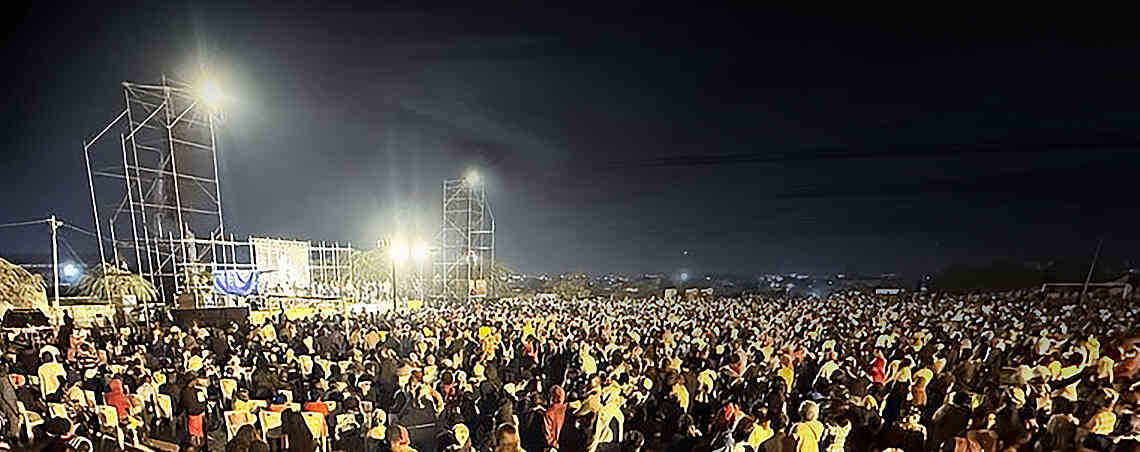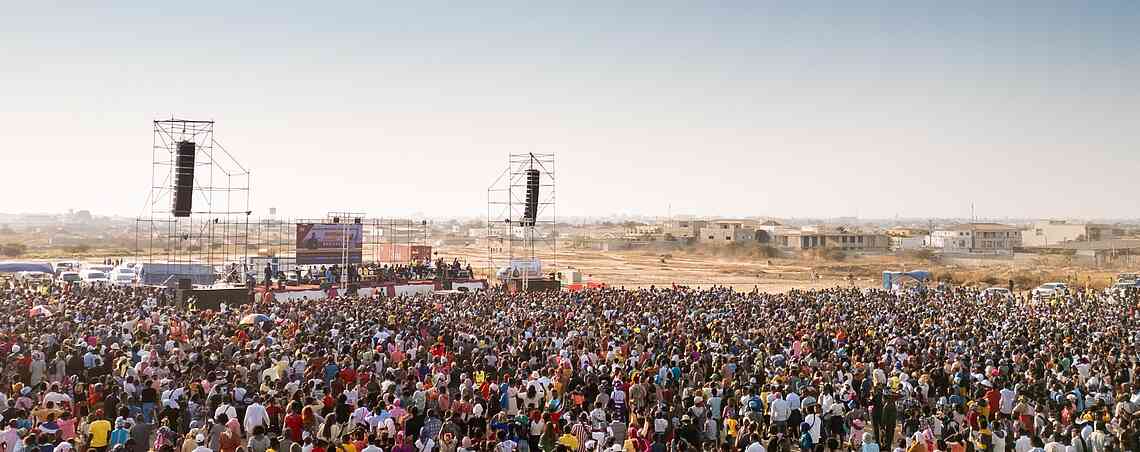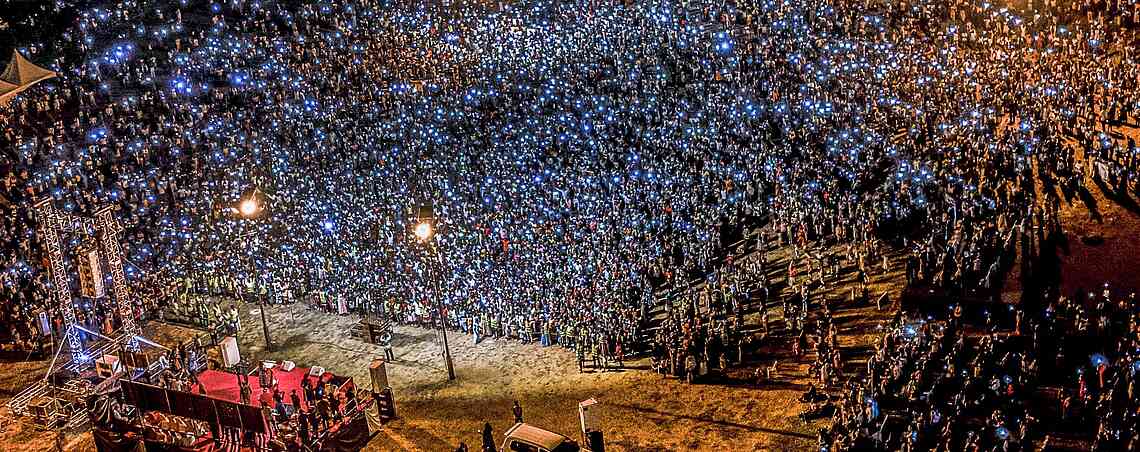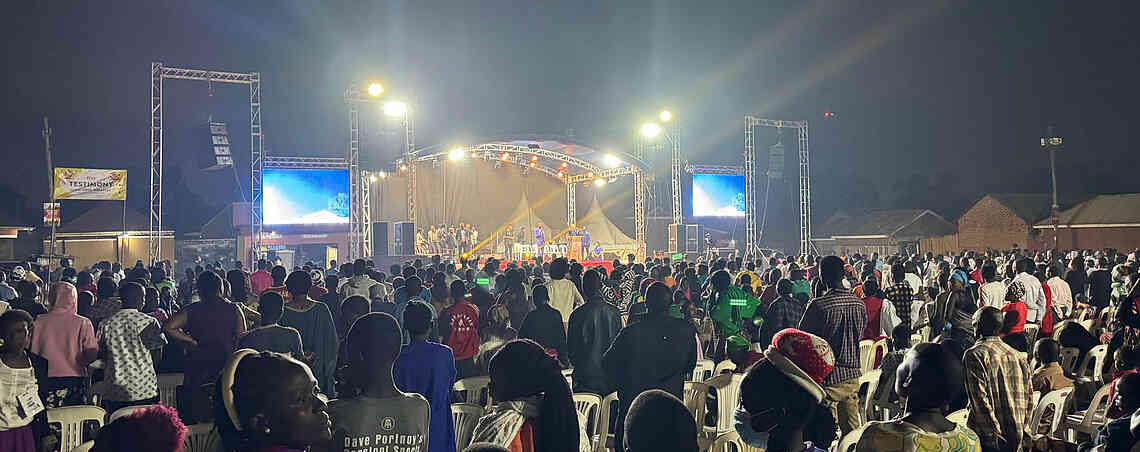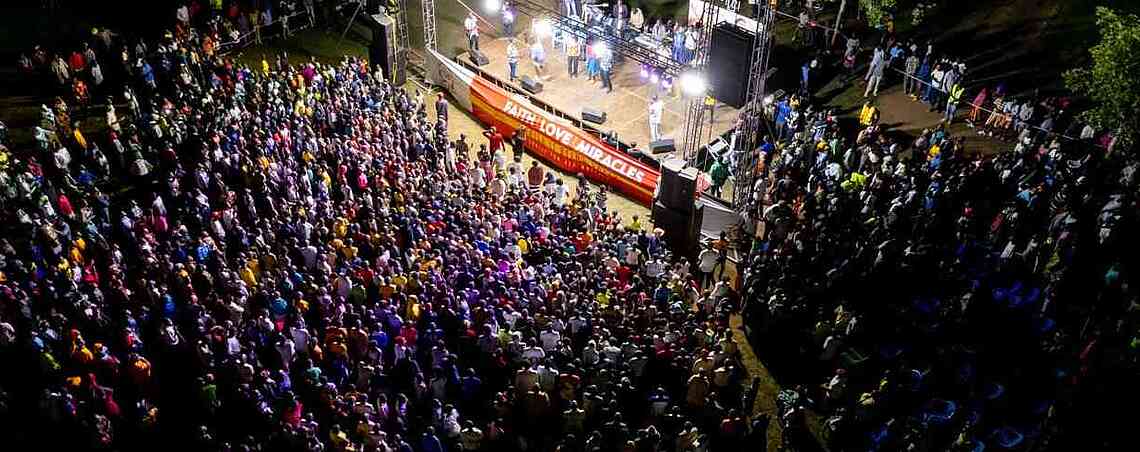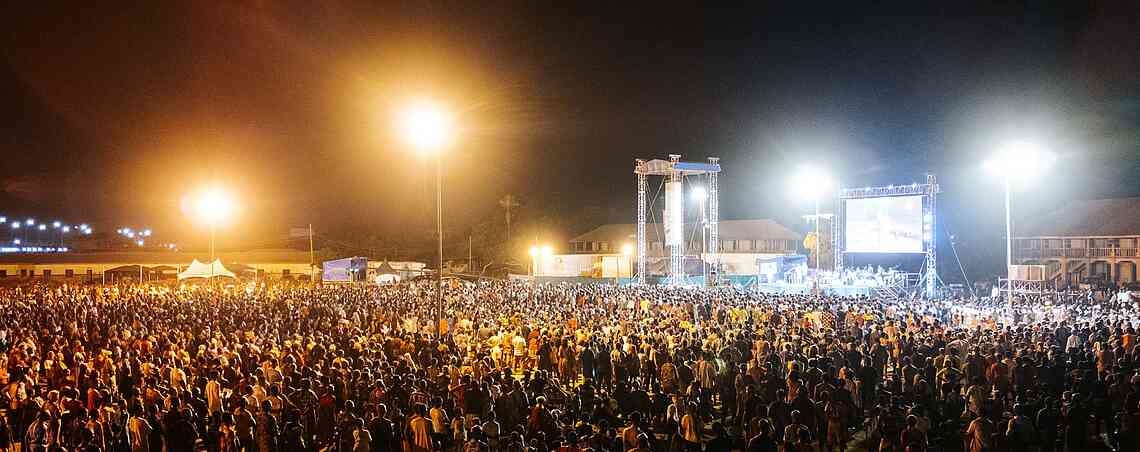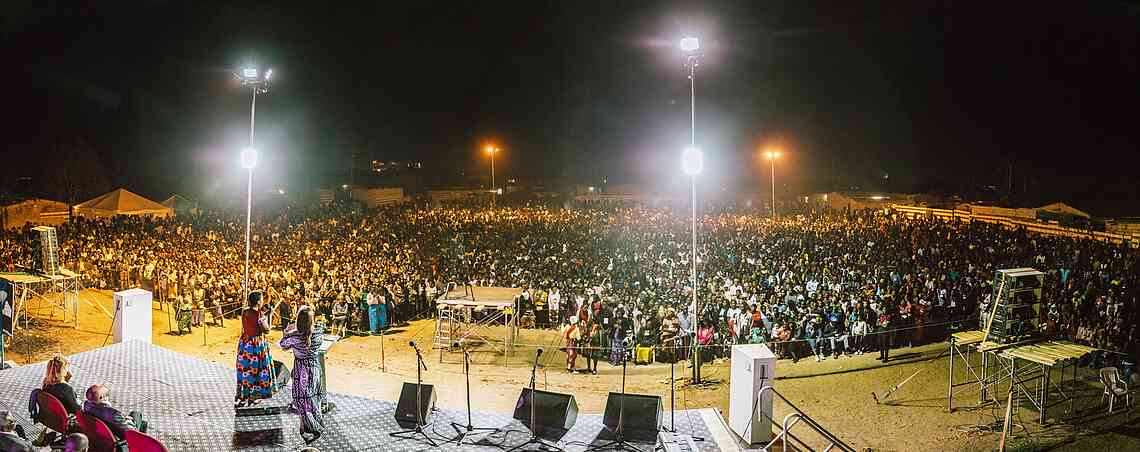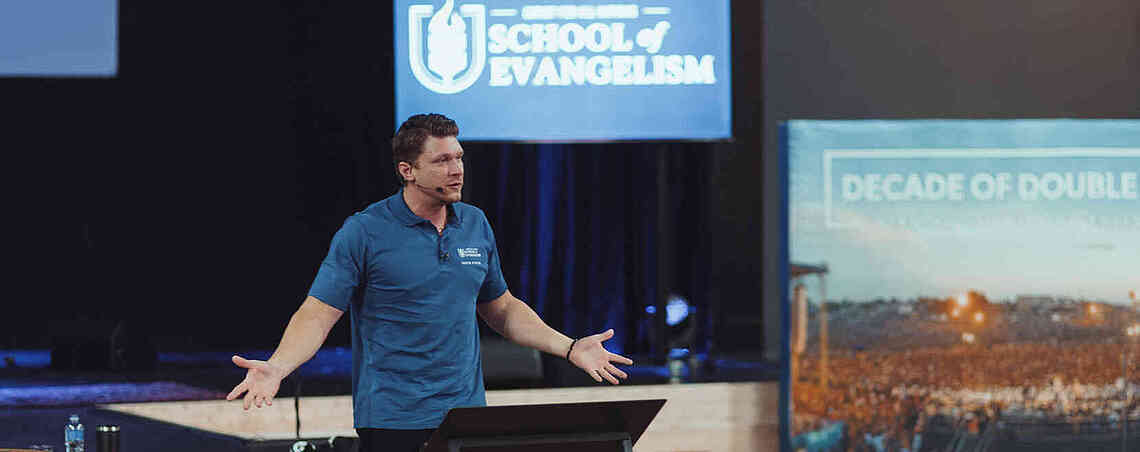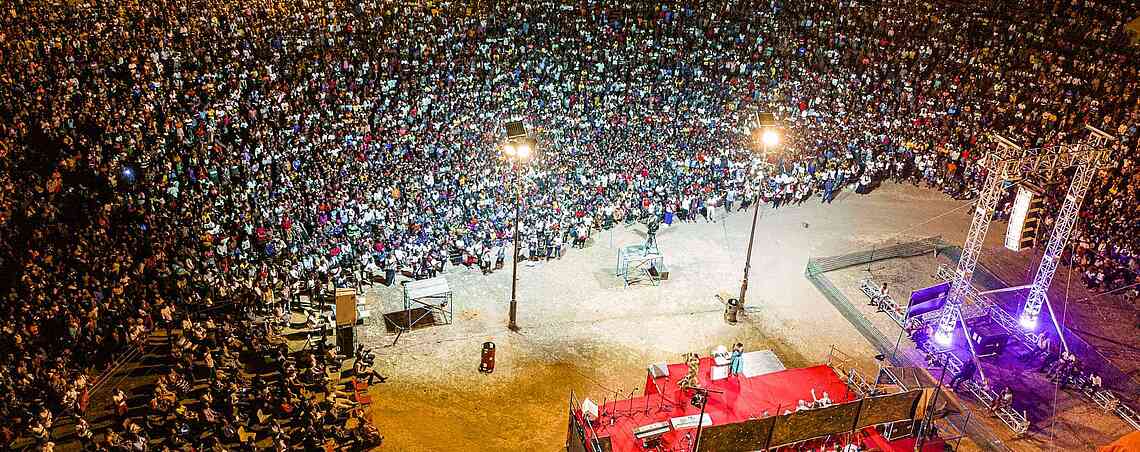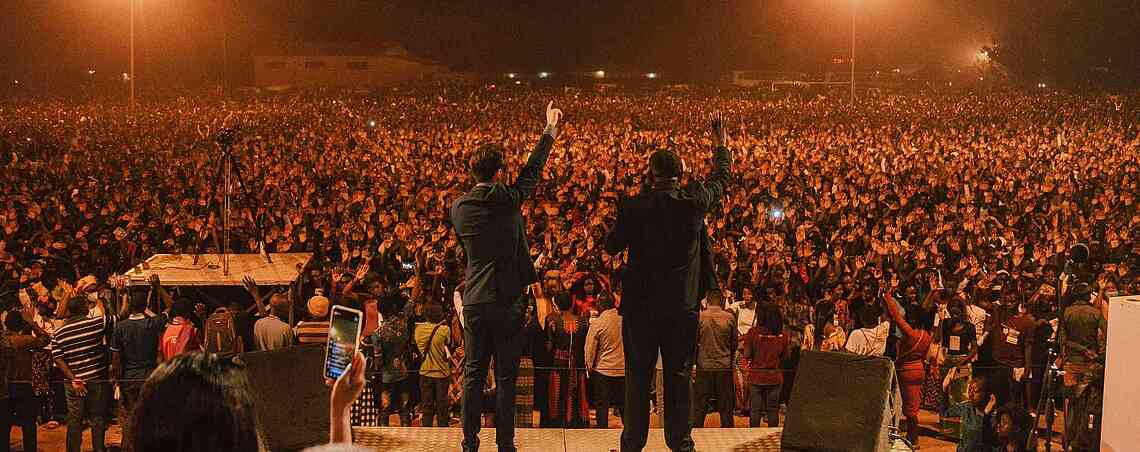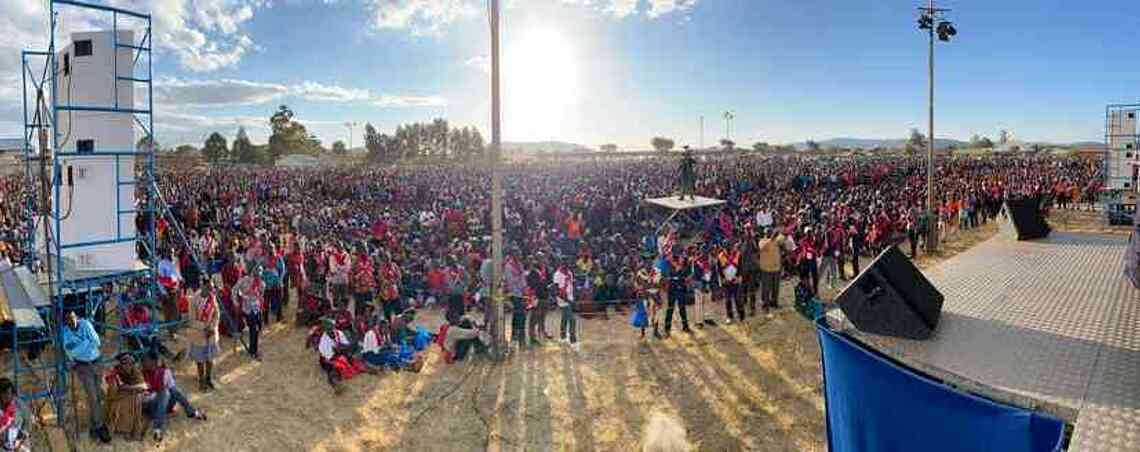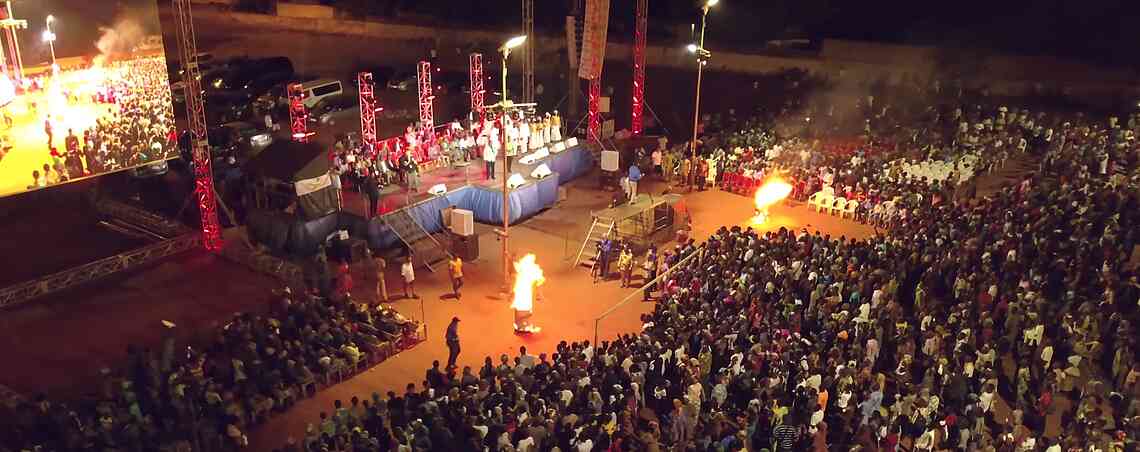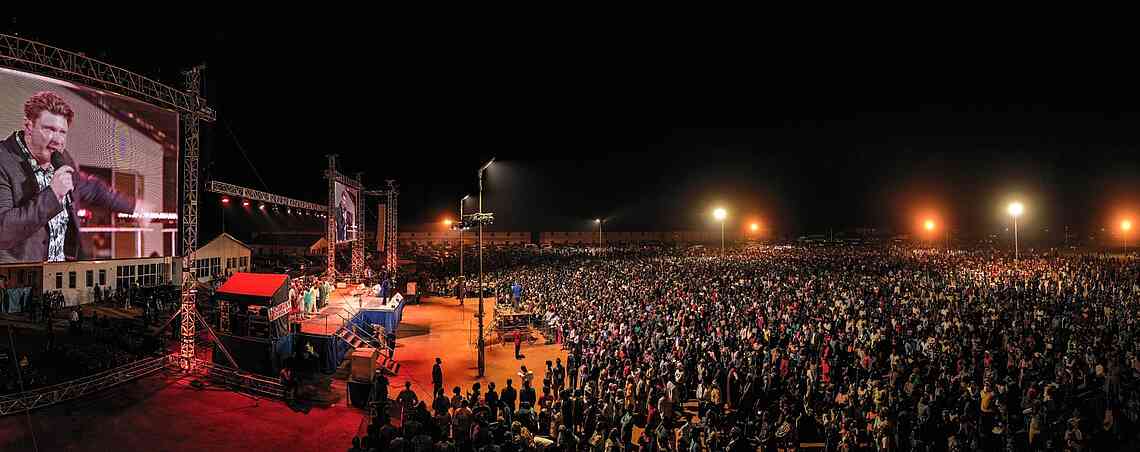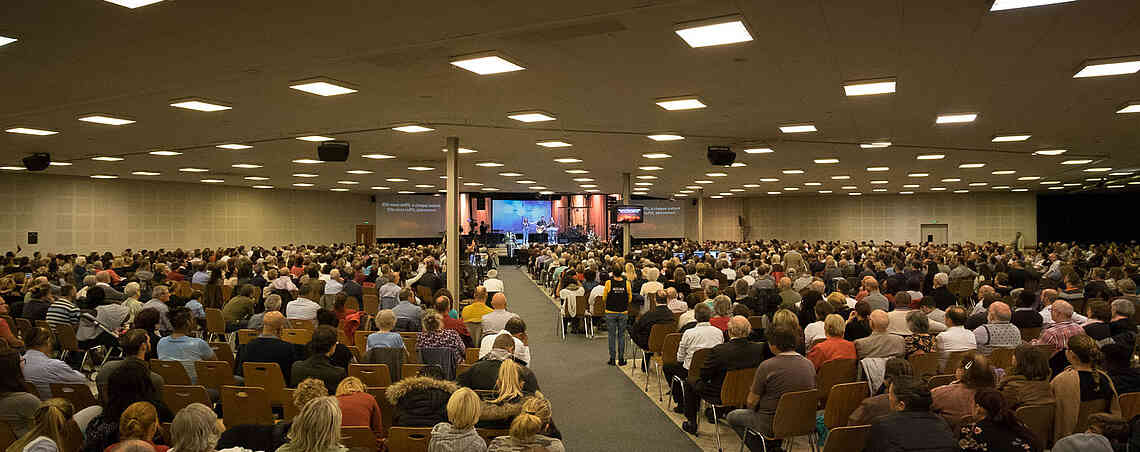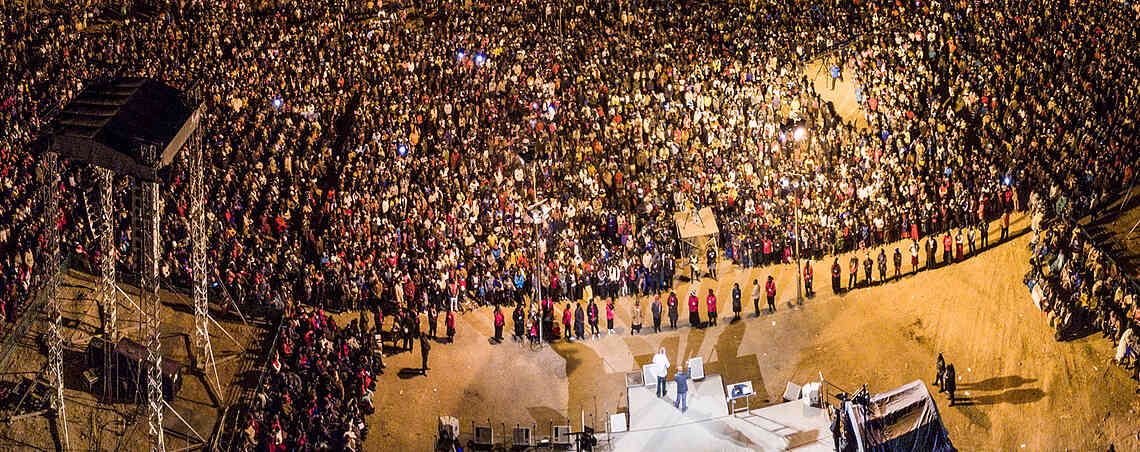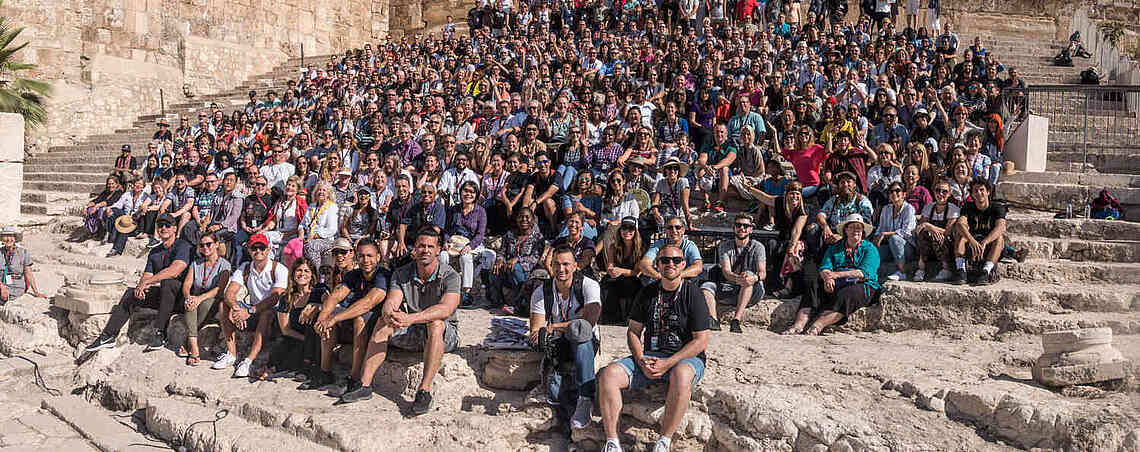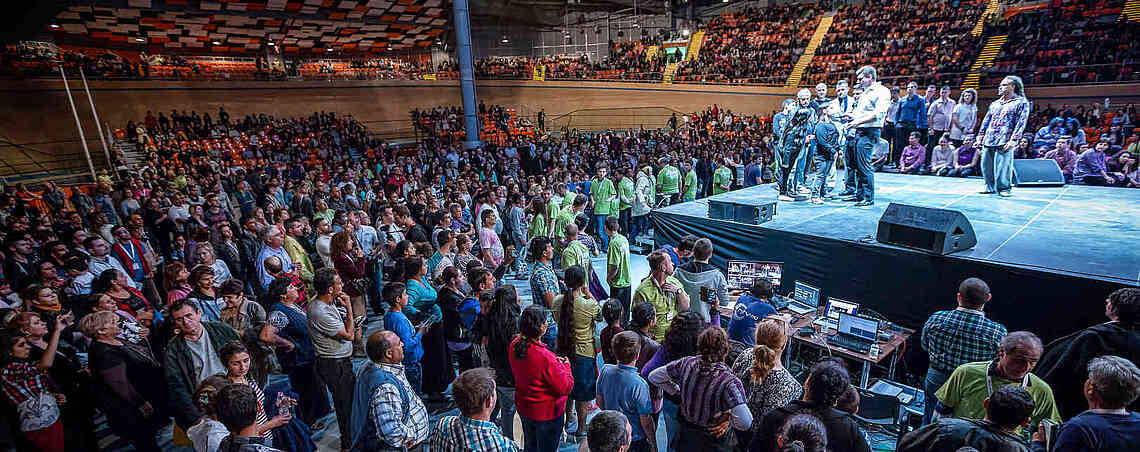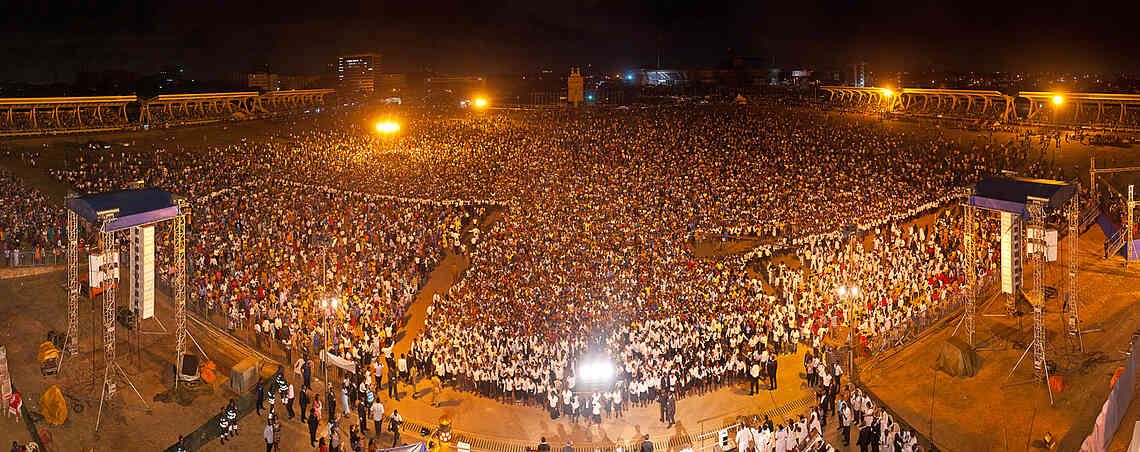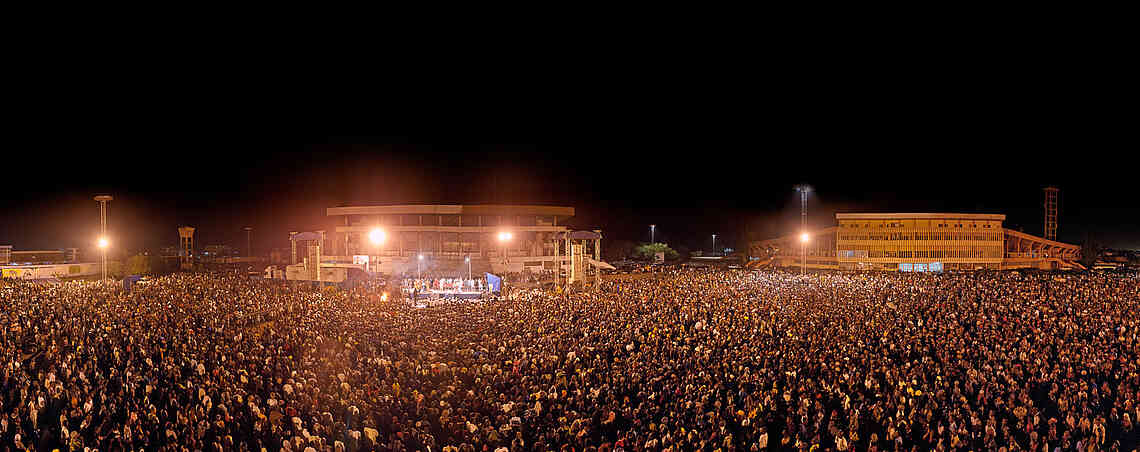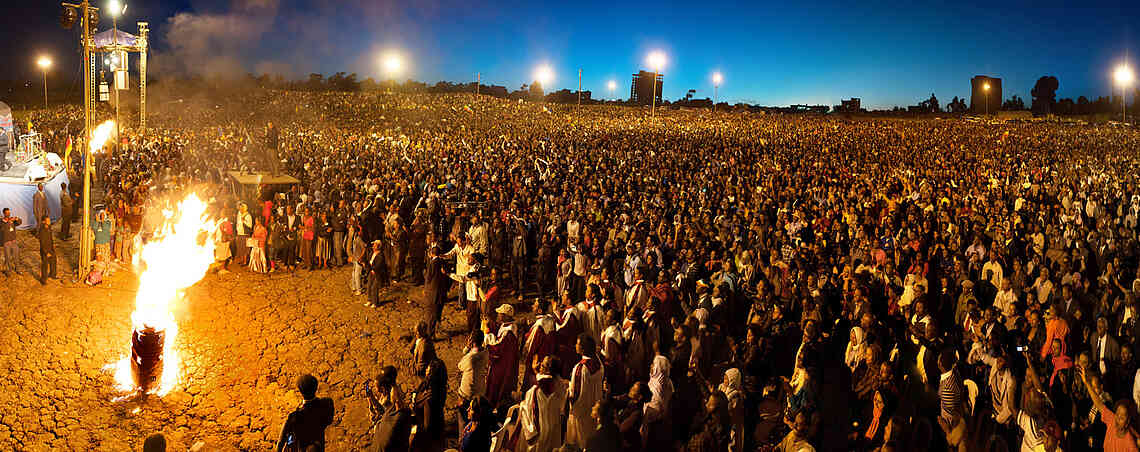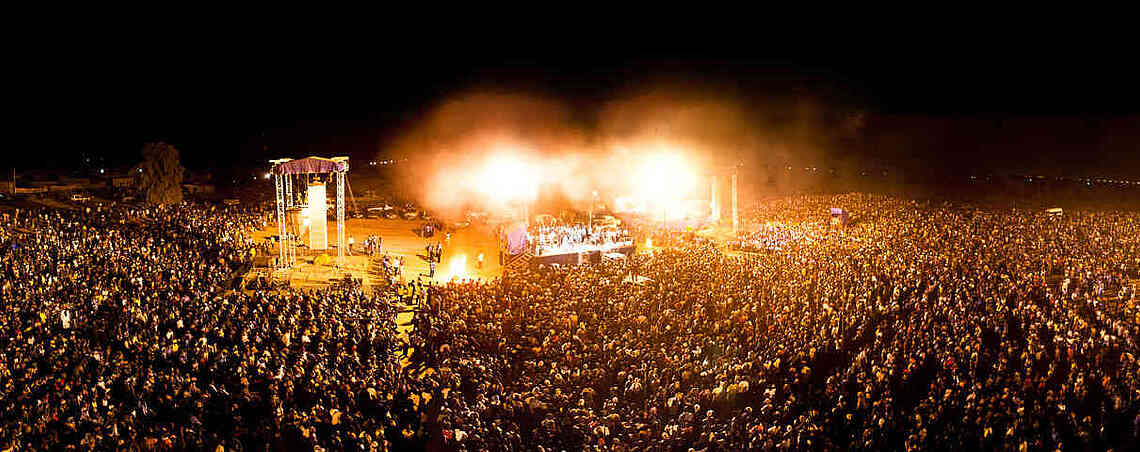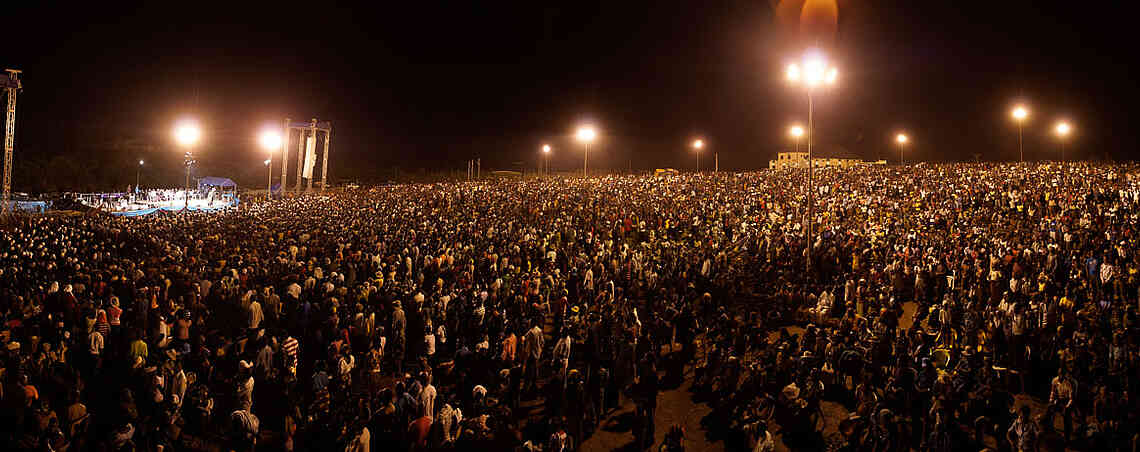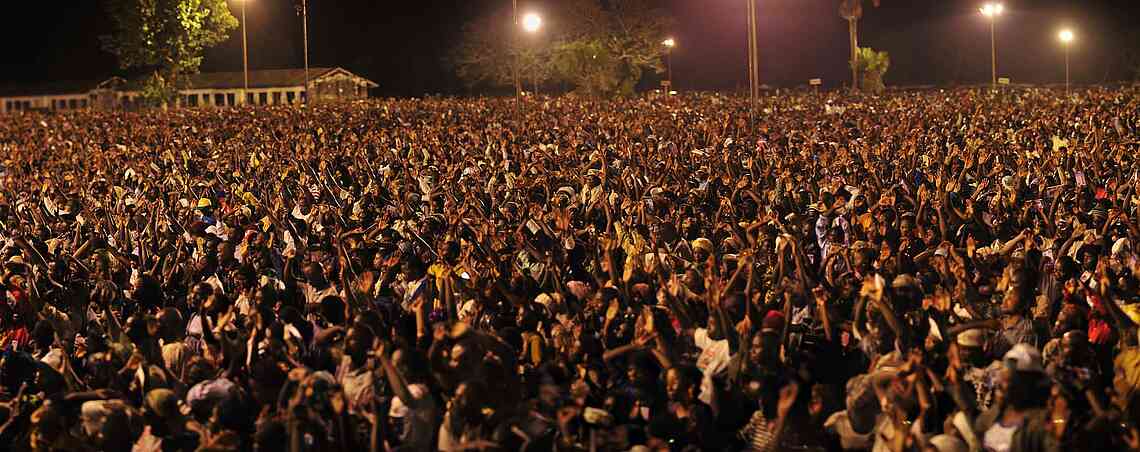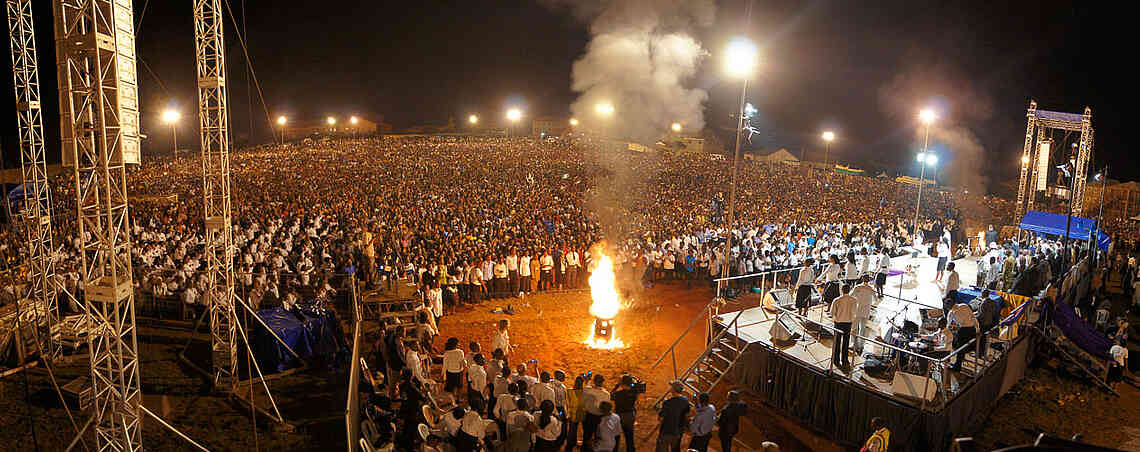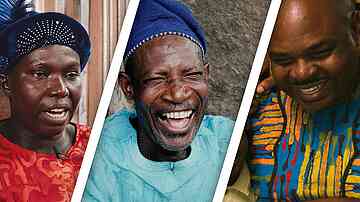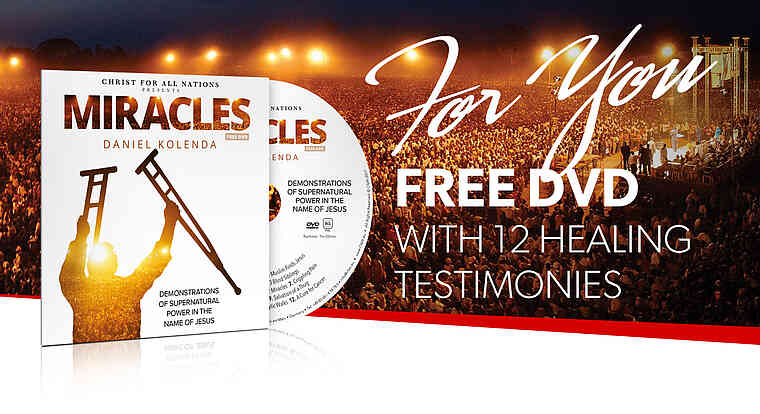
Bible Study
God’s Promises for Healing and Hope
I will never forget the first healing I witnessed with my own two eyes. I was a very young man preaching in India. After the message, I invited all who needed healing to the front of the field where I would lay my hands on them and pray in Jesus’ name. Soon a young lady stood before me. I instantly recognized her because I had noticed her weeping and praying earlier in the meeting. She got my attention because her voice was loud, hoarse, monotone, and out of synch with the movement of her mouth. I did not know her language, but I could tell she was deaf.
My heart was moved with compassion for her and now she stood before me, pointing to her ears and speaking with that same guttural tone. Her father stood with her and told my interpreter, “She is deaf. She wants to be healed.” So I put my hands over her ears and began to pray. Then I looked at her, waiting for a response. Nothing… I told her father to ask if there was any change. There was none, so I prayed again. Same result – nothing…
My prayer was a cry from the heart
As I laid my hands on her ears for the third time, I remember looking up to heaven and praying a prayer that most would not consider dignified or theologically elegant. It was a visceral cry from the heart that felt as spiritually tongue-tied and clumsy as the deaf girl’s speech a moment ago. I said something dumb like, “God if you only heal one person tonight, please heal this one.” Then I bent down close to her ear and shouted. Her eyes lit up. A shocked look came over her face as she covered her mouth (which was now hanging open) and began to sob. She turned to her father standing beside her and buried her head in his shoulder. I waited a few moments, and the father confirmed what I already suspected – she was totally healed.
The next night the young lady, together with her father and mother, came to the meeting. They testified to the huge crowd, not only about the healing, but also that they had surrendered their lives to Jesus Christ! The Lord answered my prayer to heal that young lady, but I’m so glad He did not answer it the way I prayed it. I only asked for one miracle that night, but He healed so many more. From that day, in country after country and continent
after continent, I have seen Him perform the most wonderful, awe-inspiring miracles. There are many things about God I do not know or understand. But I am sure of a few things, among them—God is good!
He wants to heal more than we want Him to heal
He wants to save more than we want Him to save. His love and compassion are greater than we could ever imagine. When we talk about hope and healing, we talk about something not only in His will, but also close to His heart. The glimpses we have seen of His kindness and love are only tiny snapshots of what He truly feels for us. The compassion I felt that day in India when I witnessed my first healing, was but an inkling of the compassion burning in God’s heart for His whole creation (Psa 145:9). Even the love we have for our own children cannot compare to the love He feels for us, nor to His desire to heal, bless, and protect us (Matt 7:11).
In my experience, this is the knowledge most difficult for people to grasp. They know God can heal them. They know He is powerful. They know He can do anything He wishes. But what they are not sure about is: “Does God want to heal me?” We see this same uncertainty in the leper who knelt before Jesus and said, “Lord, if You are willing, You can make me clean” (Matt 8:2). Notice the arrangement of those words: “If you are willing, You can…”
This is very different from the way we approach a doctor. When it comes to medicine, the natural question is not about willingness, but ability. In other words, we would say to the doctor, “If you can, I know you will.” But that was not the way the leper approached Jesus, he knew that if Jesus wanted to heal him, He could. And so often this is our hang-up as well.
Jesus says “I am willing” to us all
We know He can, but is it really God’s desire to heal us…? To heal me? Yet I believe this is precisely why the leper’s story is recorded in our Bibles – not just to show us that the Lord was good to him, not just to make us jealous, or to make us wish we lived in a different era. The story was forever documented because the leper’s question is our question. The leper’s situation is our situation. And Jesus’ answer to him is Jesus’ answer to us all – “I am willing; be cleansed” (Matt 8:3).
But how can we know this for sure? How can we be certain that it is God’s will to heal each of us? The Bible gives us three reasons, each of which centers on Jesus during His earthly life and ministry: what He did, what He commanded, and what He promised. Yet why should we focus on Jesus’ actions and words to answer the question, “What is God’s will?” Because the Bible tells us that Jesus is the exact representation of the Father (Heb 1:3). Jesus said, “Whoever has seen me has seen the Father” (John 14:9). The Scripture reveals that, “No one has ever seen God, but the one and only Son, who is himself God and is in closest relationship with the Father, has made him known” (John 1:18, NIV).
These passages show us that Jesus is the perfect expression of the Father’s person, will, and desires. So if Jesus did it, God does it. If Jesus commanded it, God commands it. If Jesus promised it, God promises it. With that in mind, let’s turn to a small sample of Jesus’ deeds, commands, and promises about hope and healing.
What Jesus Did
Now when the sun was setting, all those who had any who were sick with various diseases brought them to him, and he laid his hands on every one of them and healed them (Luke 4:40, emphasis added).
When he went ashore he saw a great crowd, and he had compassion on them and healed their sick (Matt 14:14 emphasis added).
And great crowds came to him, bringing with them the lame, the blind, the crippled, the mute, and many others, and they put them at his feet, and he healed them, so that the crowd wondered, when they saw the mute speaking, the crippled healthy, the lame walking, and the blind seeing. And they glorified the God of Israel (Mat 15:30-31, emphasis added).
How God anointed Jesus of Nazareth with the Holy Spirit and with power. He went about doing good and healing all who were oppressed by the devil, for God was with him (Acts 10:38, emphasis added).
And all the crowd sought to touch him, for power came out from him and healed them all (Luke 6:19, emphasis added).
Why should we consider what Jesus did? Some might object that since Jesus was the Son of God, His miracles simply proved His divinity. But we cannot separate Jesus’ divinity from His humanity. Once the “Word became flesh,” Jesus’ divinity was fused with His humanity forever. He remained one Person and always acted like Himself. He was not schizophrenic, sometimes acting “more” like God than other times. Whatever He did as the Son of God He also did as the Son of Man, and vice versa. Consequently, when He healed the sick and raised
the dead, He was acting like a true human as much as He was acting like the true God. That is how He could make Himself an example of healing and miracle-working for His disciples (John 14:12). And it is how He could command His disciples to perform the same powerful works (see below). As Son of God and Son of Man, Jesus performed His miracles under the same anointing of the Holy Spirit that He promised would give us power as well (Acts 1:8).
Someone else may protest (as many have) that Jesus does not do the same supernatural works today that He did in the past. But this is categorically unbiblical. Jesus Christ, as the writer of Hebrews tells us, is “the same yesterday, today and forever” (Heb 13:8). Through the prophet Malachi, God assures us, “For I the Lord do not change” (Mal 3:6). If Jesus did it two thousand years ago, we can be sure that it remains God’s will to do the same today. In fact, the reason Jesus did it two thousand years ago was to set a precedent for how He will continue to act through His people today.
What Jesus Commanded
Jesus said to the ruler of the synagogue, “Do not fear, only believe” (Mark 5:36, emphasis added).
And as you go, preach, saying, “The kingdom of heaven is at hand.” Heal the sick, cleanse the lepers, raise the dead, cast out demons. Freely you have received, freely give (Matt 10:7-8, NKJV, emphasis added).
And he said to them, “Go into all the world and proclaim the gospel to the whole creation… And these signs will accompany those who believe: in my name they will cast out demons; they will speak in new tongues; they will pick up serpents with their hands; and if they drink any deadly poison, it will not hurt them; they will lay their hands on the sick, and they will recover” (Mark 16:15, 17-18, emphasis added).
Why is it important to consider what Jesus commanded? Because no one in his right mind would command something that was not His will. Someone might object that Jesus commanded the first disciples to do these things, not us, but that misses the whole point of Scripture. “Whatever was written in former days was written for our instruction” (Rom 15:4). Everything Jesus said originally applied to His original disciples and that is how we know they apply to us as well. Scripture preserves Jesus’ commands in order to apply them timelessly to every generation of disciples. Would we relegate Jesus’ moral commands only to His original disciples? When He tells them, “You must be born again,” “Sin no more,” “Love one another” or “Abide in Me” (John 3:7; 8:11; 13:34; 15:4) we would never say, “Those words only applied to the disciples of Jesus’ day. We don’t have to be born again! We can keep sinning. No need to love one another or abide in Him.” That kind of thinking is absurd – and sinful. Why, then, would we reduce Jesus’ missional commands to preach the Kingdom, heal the sick, and raise the dead to be first century commands only? They apply to every generation of disciples. Jesus said, “If you love Me, you will keep My commandments” (John 14:15). That means all of His commandments.
What Jesus Promised
The thief comes only to steal and kill and destroy. I came that they may have life and have it abundantly (John 10:10, emphasis added).
Truly, I say to you, if you have faith like a grain of mustard seed, you will say to this mountain, “Move from here to there,” and it will move, and nothing will be impossible for you (Matt 17:20, emphasis added).
Truly, truly, I say to you, whoever believes in me will also do the works that I do; and greater works than these will he do, because I am going to the Father (John 14:12, emphasis added).
Why does it matter what Jesus promised? Because the Bible says that God has exalted His name and His Word above everything (Ps 138:2, ESV), that He is not a man that He should lie (Num 23:19), that He watches over His Word to perform it (Jer 1:12), and that He never changes (Mal 3:6). When He makes a promise, it is impossible for Him to lie (Heb 6:18) – God’s promises do not change; they abide forever as absolute truth to anchor our souls.
Let these simple and timeless truths saturate your heart as you begin to read the pages before you. Resist the voice of the enemy that whispers words of doubt, disillusionment, and fear. Faith is spelled T-R-U-S-T. It is leaning back into the eternal arms of God and saying like Job, “Though he slay me, yet will I trust in him” (Job 13:15). No one is more trustworthy, more compassionate, more kind, and more loving toward you than Jesus. Let this deep assurance give you confidence as you fill your heart and mind with promises of hope and healing from God’s Word.
Excerpt from God’s Promises for Healing and Hope by Daniel Kolenda


